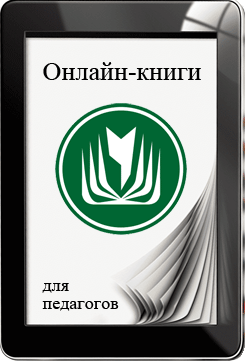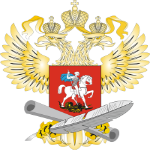Конспект урока английского языка в 9 классе по теме:
William Shakespeare - famous English writer.
Учитель ГОУ СОШ №301 г.Санкт-Петербурга - Куденцова Ирина Владимировна
Цели урока: Активизировать познавательную деятельность учащихся.
Развитие интереса учащихся к культурному наследию Великобритании.
Изучение творчества У. Шекспира.
Повышение интереса учащихся к изучению английского языка.
Развитие навыков и умений говорения.
Развитие способности и готовности общения на английском языке.
Закрепить лексический материал по теме “Вильям Шекспир”.
Создание благоприятного эмоционально-психологического климата
на уроке.
Задачи:
Учебные - обобщение и систематизация изученного лексического и грамматического материала; учить учащихся правильному употреблению речевых образцов в речи и самостоятельной работе с фонетическим материалом; изучение пословиц, ‘крылатых фраз’ и идиоматических выражений; продолжить работу над словообразованием однокоренных слов.
Развивающие - интеллектуальное развитие учащихся; развитие языковых, интеллектуальных и познавательных способностей; знакомство с культурным наследием и традициями Англии; готовность к коммуникации.
Воспитательные - формирование у учащихся уважения и интереса к культуре и народу страны изучаемого языка; воспитание культуры общения; воспитание и формирование потребности в познавательной активности.
ХОД УРОКА:
Good morning. I am glad to see you. How are you today?
(Good morning. Fine, thank you.)
Today we’ll speak about a famous English writer – William Shakespeare. Certainly, all of you know this name and some of his books, but I think that you don’t know much about his life and his theatre. So we’ll see a presentation which was made by one of the pupils of our school last year. And it will help us to know more about the greatest English playwright. After the seeing you will be asked to do some exercises. Be attentive, you may write down some information in your exercise-books.
( слайд 1 – 8) (Pupils read the presentation and learn some facts from W.Shakespeare’s life.)
William Shakespeare
(1564-1616),
Shakespeare is the greatest of all playwrights and poets of all times. The last half of the 16th and the beginning of the 17th centuries are known as the golden age of English literature. Sometimes it is called “the age of Shakespeare”.
William Shakespeare was born on the 23rd of April 1564, in
Stratford-on-Avon. At the age of 6 he was sent to school, but had to
leave it at the age of 13 and never went to school again. His father
who couldn’t even write was a glove-maker. William helped him in
his trade.
At the age of 18, he married Anne Hatheway. Ann was
8 years older than her husband and their marriage wasn’t happy.
They had 3 children.
At that time actors and actresses visited Stratford-on-Avon. William liked to watch them. He was fond of their profession and he decided to become an actor. When he was 21 he went to London. There he became an actor. He began to write plays too. He worked in the modern theatre “Globe”. 14 years later he became a part owner of the Globe theatre in London.
The original Globe was opened in 1599, burned down in 1613 and immediately rebuilt. It was a round building with the stage in the centre, open to the sky. If it was raining, the actors got wet; if the weather was too bad, there was no performance at all. It was closed in 1642.
In 1997 after almost 400years Shakespeare’s Globe was opened again for public. Every summer it offers now performance of plays by Shakespeare.
The first task is very interesting. Guess whether it is true or false. (Teacher reads sentences. Pupils who give right answers get scores / pluses. )
-
W.Shakespeare was born on April 23, 1564 and he died also this date, April23, 1616.(+)
-
His father, John Shakespeare, couldn’t write. (+)
-
His mother was a daughter of the farmer. (+)
-
W.Shakespeare married when he was 18 years old. (+)
-
W.Shakespeare had 3 children: a daughter and twin sons. (+)
-
In the 16th century there were many theatres in Britain. (-)
-
Globe Theatre was situated on the bank of the River Thames. (+)
-
Nowadays Shakespeare’s Globe Theatre is opened all year round. (-)
-
When W.Shakespeare came to London his first job was holding rich man’s horses at the theatre door. (+)
-
He wrote 37 plays but only 18 were published in his lifetime. (+)
-
He made up the stories himself. (-)
The next exercise is about the famous Globe Theatre. Take cards#1 on your desks. Read the short text and fill in the words in the correct form: (3-5 min., teacher checks the works and pupils who give right answers get scores / pluses. )
|
DESTROY |
|
BUILD |
|
KNOW |
|
PERFORM |
|
PERFORM |
|
MUSIC |
The Globe
The Globe Theatre was a theatre in London built in 1599 by Shakespeare’s playing company, and was -------------------- by fire on 29 June 1613. A second Globe Theatre was built on the same site by June 1614 and closed in 1642.
In 1949 an American actor and film director Sam Wanamaker came to London looking for the site of the Globe Theatre. He didn’t find any so in 1970 he established Globe Playhouse Trust with the aim of rising funds to -------------- the Globe. And in 1997 Her Majesty the Queen opened the International Shakespeare Globe Centre.
The Globe’s actual dimensions are -----------------, but it was a three-storey, open-air amphitheatre approximately 30 m in diameter that could house up to 3,000 spectators
At the base of the stage, there was an area called the pit, where, for a penny, people would stand on the earthen floor to watch the ------------------ . Around the yard were three levels of stadium-style seats, which were more expensive than standing room.
A rectangle stage platform, also known as an ‘apron stage’ thrust out into the middle of the open-air yard. On this stage, there was a trap door for use by ------------------ .
Large columns on either site of the stage supported a roof over the stage. The ceiling under this roof was called the ‘heavens’, and was painted with clouds and the sky. The balcony housed the ------------------ and could also be used for scenes, such as the balcony scene in “Romeo and Juliet”.
Who read W.Shakespeare’s plays? What plays do you know? (Pupils answer the questions. )
Let’s return to our presentation and read some information about W.Shakespeare’s books.
( слайд
9 -10) –reading.
Shakespeare’s experience as an actor helped him greatly in the writing of his plays. His knowledge of stage and his poetical genius made his plays the most wonderful ones ever written.
Shakespeare wrote:
37 plays;
17 comedies,
10 historical plays
7 books of poems.
2 long poems and 154 sonnets.
Most of Shakespeare’s plays were not published in his lifetime. So some of them may have been lost in the fire when the “Globe” burned down in 1613.
It is interesting to note that almost all plots of Shakespeare’s plays were not original.
He took them from the works of other authors. At that time the audience was rather ignorant
and the playwrights tried to attract it to the world literature through their plays. Shakespeare took his plots from history, old legends, novels and poems; he also used Plutarch’s “Historical Portraits”. The plot of “Othello” and “Twelfth Night” was taken from Italian novels and those of “Hamlet” and “King Lear” - from early English authors. But every borrowed plot began to live a new life in his plays.
Shakespeare also wrote 2 long poems and 154 sonnets. They show his extraordinary powers of expression and his depth of emotional understanding.
( слайд 11 ) –read and translate.
Comedies:
-
The Comedy of Errors
-
The Taming of the Strew
-
All's well that ends well
-
A Midsummer Night's Dream
-
Much Ado about Nothing
-
Twelfth Night
-
Merry Wives of Windsor
Tragedies:
-
Hamlet, Prince of Denmark
-
Othello
-
King Lear
-
Macbeth
-
Romeo and Juliet
-
Julies Caesar
-
Antony and Cleopatra
(If you have time you can read slides 12 and 13 )
I
am fond of… - я очень
люблю… As
to me… - что
касается меня… I
couldn’t
help smiling/laughing…
- я не мог не улыбаться/ смеяться… I
couldn’t
help crying…
- я не мог не плакать… The
book is written by well-known English writer of the ……..
century …….. –книга написана
известным английским
писателем …….века……….
The
title of the book is ……. – название
книги……….. It’s
a love story
/tragedy/comedy
– это любовный роман/ трагедия/ комедия The
plot of the (book) is interesting – содержание
книги очень
интересное. The
(book) tells about a ……… who …….. ( the contents of the
book must be given very briefly) - книга
рассказывает о
………., который(ая)
…………. There
are some humorous/ funny/ sad/ tragic episodes - есть
юмористические/ смешные/
печальные/трагические
эпизоды. To
cut a long story short, …….. - короче
говоря, …….. (the end of
the book must be given). I
can’t but mention such characters as …… -
не могу не упомянуть таких персонажей
как ….. If
you like historical novels/ love stories/ comedies/ tragedies I
advise you to read this (book).
Now I want you to talk about the great plays written by W.
Shakespeare. You can work in groups. Choose one of W. Shakespeare’s
plays. Say that you have read it and recommend us to read this play.
You’ve got cards with some phrases on your desks. Look at them;
they can help you, use as many phrases as you can. You have 4-5
min.
Answers:

:

Shakespeare’s works have great influence on English. Many sayings and quotations came from his work. Many of his expressions have become part of the language. These sayings are known to everybody and they are widely used. Translate some of them. (слайд 14 )
1“Something is rotten in the state of Denmark”
2“To be or not to be”.
3“Sweets to the sweet”
4“Life is not all cakes and ale”
5“Love is blind”
6“The beginning of the end.”
7“All is well that ends well.
8“Brevity is the soul of wit”
9“Much ado about nothing.”
10“The whirling of time”
11“Cowards die many times before
their death”
1“Не все в порядке в Датском королевстве”
2“Быть или не быть”
3 “Прекрасное – прекрасной”
4 “ Жизнь прожить - не поле перейти”
5 “Любовь слепа”
6 “Начало конца”
7 “Все хорошо, что хорошо кончается”
8 “Краткость - сестра таланта”
9 “Много шума из ничего”
10 “Превратности судьбы”
11 Трус умирает много раз до
смерти”
Many lines of his works became famous sayings and are known all over the world.
Complete the Shakespeare’s quotes. Can you match the two halves to make the quote?
( слайд 15 ).
1 .
All the world's a stage
.
All the world's a stage
2
 .
To be, or not to be:
.
To be, or not to be:
3 .
Love is blind
.
Love is blind
4 .
Neither a borrower
.
Neither a borrower
5 .
I must be cruel
.
I must be cruel
6 .
Men of few word
.
Men of few word
7. What's done
is done.
and all the men and women are merely players.
and lovers cannot see.
that is the question.
nor a lender be.
only to be kind.
are the best men.
Now I am going to speak about idioms. Do you remember what idioms are? Do you know the examples? (Pupils try to answer.)
An idiom is a set expression which has a meaning different from the literal meanings of its components. Idioms can be quite clear or pretty unclear. It is useless to ask why idioms have such unusual structure or choice of words, or why they don't follow basic grammar rules. Let's just accept as fact that idioms are a difficult peculiarity of English. Many idioms appeared as quotations from well-known writers such as Shakespeare. For example, "at / in one fell swoop" comes from Macbeth and "cold comfort" from King Lear. (слайд 16 ) - read, write down idioms and do the exercise. These idioms were invented by William Shakespeare and used in his famous plays. They are all used in everyday English and very well known. Can you match each idiom to the correct sentence? Check answers with the help of the presentation.
You were good at doing exercise and now let’s read some facts about the last years of Shakespeare’s life. (слайд 17 - 19) – reading.
Shakespeare spent most of his career in London as an actor, playwright and manager of the Globe Theatre. In 1611 he came back to Stratford and spent there the last years of his life, there he died, on the same date as his birthday, the 23rd of April 1616. He was buried in Holy Trinity Church of Stratford. His tomb has four lines that are said to have been written by him:
“Good friend, for Jesus’ sake,
forbear
To dig the dust enclosed here;
Blessed be he that
spares these stones,
And cursed be he that moves my bones”.
A monument was opened to the memory of the great playwright in the Poet’s Corner in Westminster Abbey.
After reading the presentation you know a lot of information. What do you know about William Shakespeare? Try this quiz to find out. On your desks there are sheets of papers with a short test. You may work in groups again.
1) When was William Shakespeare born?
-
1498
-
1564
-
1895
2) Where was Shakespeare born?
-
Stratford Upon Avon
-
Cambridge
-
London
3) Which type of plays did Shakespeare not write?
-
Tragedies
-
Comedies
-
Musicals
4) What's the name of the ‘Shakespeare theatre' in London?
-
The World Theatre
-
The Globe Theatre
-
The Shakespeare’s Theatre
5) Which of these plays was not written by Shakespeare?
-
Hamlet
-
Romeo and Juliet
-
Mary Stuart
6) He wrote …
-
tragedies, novels, historical plays, poems and sonnets
-
tragedies and comedies
-
tragedies, comedies, historical plays, poems and sonnets
7) He studied at …
-
a university
-
a grammar school
-
an artist’s school
8) His father was a …
-
shoe-maker
-
glove-maker
-
house-maker
9) Shakespeare went to … at the age of 21.
-
London
-
Stratford
-
New York
10) Who played Romeo in the most recent film version of ‘Romeo and Juliet'?
-
Leonardo Dicaprio
-
Johnny Depp
-
Brad Pitt
Answers:
|
1 |
2 |
3 |
4 |
5 |
6 |
7 |
8 |
9 |
10 |
|
B |
A |
C |
B |
C |
C |
B |
B |
A |
A |
I’d like to finish our lesson with the words of an English poet, polemicist and politician John Milton. (слайд 20) His words were translated by famous Russian poet and translator S.Marshak.
And there are very wise words written by W Shakespeare in Sonnet 18. Read them. (слайд 21).
Your home task for the next lesson is: to prepare a short story about your favorite play by W.Shakespeare. You have worked well today. Your marks at the lesson are...
The lesson is over, good bye.
Список использованных ресурсов:
1.“Spoken English”, пособие по разговорной речи. Ю.Галицынский, С-пб, «Каро»2000.
2. Разговорные темы к экзаменам по английскому языку, С-Пб «Корона-Век» 2010,
С.Катенин и др.
3. Английский язык, тематический сборник для подготовки к устному экзамену по английскому языку за курс основной школы, Т.Ю.Журна, «Дрофа»,М-ва, 2004.
4. William Shakespeare - Wikipedia, the free encyclopedia.
5. http://images.yandex.ru/yandsearch?text=william%20shakespeare&stype=image
6. http://www.kirjasto.sci.fi/shakespe.htm
7. http://www.bbc.co.uk/history/historic_figures/shakespeare_william.shtml
8. http://www.quotationspage.com/quotes/William_Shakespeare
9. http://www.enotes.com/william-shakespeare/shakespeare-biography
10. «Шекспир» С.Шенбаум, краткая документальная бография, «Прогресс»,М-ва,1985.
11. http://festival.1september.ru/articles/subjects/10
- Вебинар «Игры-эксперименты с дошкольниками: воспитываем потребность в познавательном общении со взрослыми, стремление наблюдать, сравнивать, исследовать, устанавливать причинно-следственные связи (ФОП ДО)»
- Вебинар «Краеведческая работа библиотек как средство интеграции в социокультурное пространство региона: традиционные формы, новые технологии»
- Международный вебинар «Лицевая гимнастика: комплексы упражнений, подготовка и методика проведения»
- Международный вебинар «Цифровые образовательные ресурсы, дистанционные образовательные технологии, электронное обучение в работе с обучающимися с нарушениями зрения»
- Международный вебинар «Создание безопасной образовательной среды в образовательной организации в рамках реализации федерального проекта “Цифровая образовательная среда”»
- Международный вебинар «Приоритетные ориентиры в системе “государство – отдых – ребёнок”, принципиальные подходы к сфере отдыха и оздоровления детей, современные формы, методы и технологии организации отдыха и оздоровления детей»



